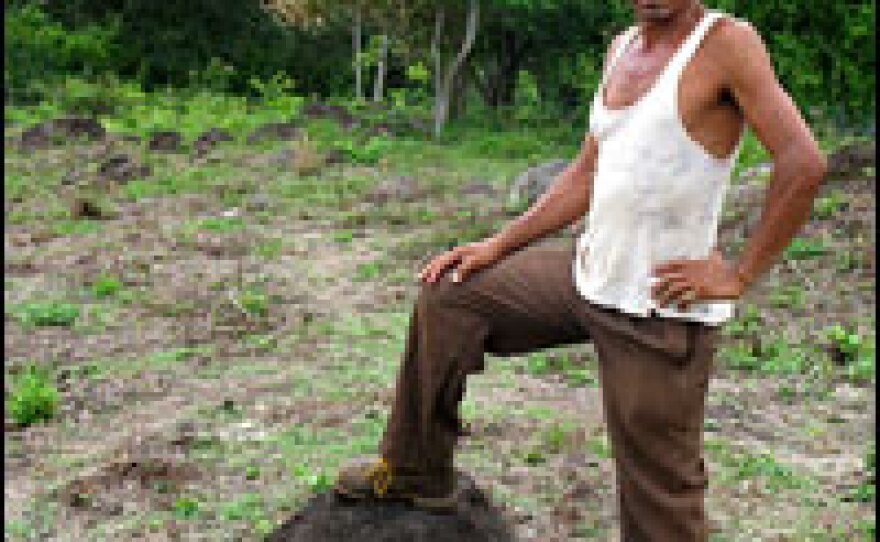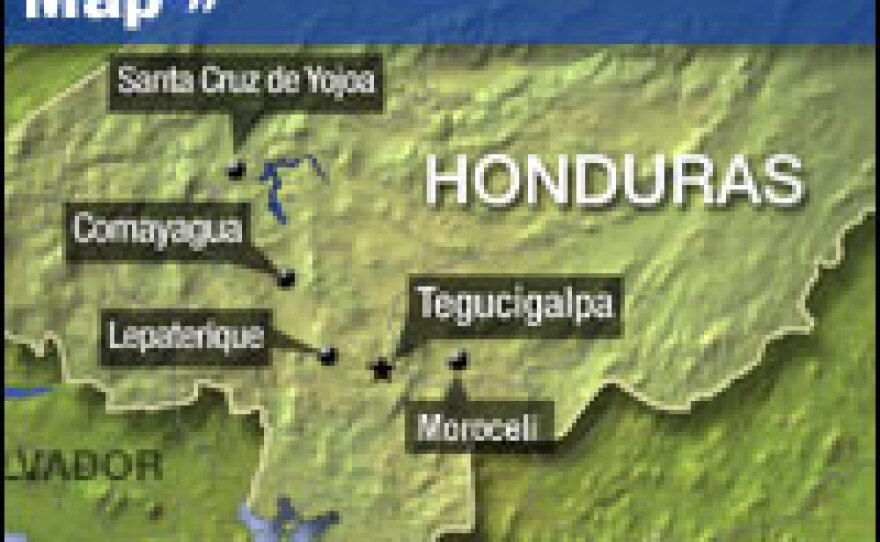
For many Third World farmers, the world has turned upside down. They used to complain about low prices, which made it hard to earn a living. They blamed, in part, farm subsidies in rich countries, which encouraged overproduction.
But now grain prices have gone through the roof all over the world. Which raises the question: If low food prices were bad for Third World farmers, are high prices good for them?
The answer? It depends.
For Carlos Roberto Navarro, a farmer in the town of Moroceli, Honduras, those high prices are good news. He's a small farmer, but a profitable one, and the high prices convinced him to grow more corn and beans this year. He's rented additional land and planted 30 acres, instead of six.
But Navarro says he's not typical. Most farmers in Honduras aren't making any money, he says. They never did, and they never will.
That opinion is widely held in Honduras, and many of the reasons are predictable.
"People don't have the management skills; they don't have good land; they don't have good markets to sell their products," says Arie Sanders, a Dutch economist who teaches at Zamorano, the leading agricultural university in Honduras.
Cutting Back On Production
Gregorio Diaz, who grows corn and beans on a few acres near Santa Cruz de Yojoa, says most small farmers are actually cutting back their production this year. That's because their costs are soaring. Prices for fertilizer and pesticides have gone up even more than food prices.
Even subsistence farmers in Honduras rely on those chemical inputs.
"We'll apply fungicides, insecticides, pesticides, because beans are very delicate," Diaz says.
He is planting crops on just three acres this year. It's too risky to spend more, he says, with no guarantee he'll earn it back.
Farmers like Diaz don't expect to profit from high food prices because farming, for them, has never really been a profitable activity. The real reason they plant corn, beans or rice is so their families have something to eat.
They earn income from other sources, says economist Arie Sanders. They pick up occasional jobs, and many receive cash from relatives in the United States or in Honduran cities.
"That's the way that small farmers survive," Sanders says. "Not by their own farm, but by off-farm employment."
Experts: Promising Path Out Of Poverty
Even so, many experts on economic development are increasingly convinced that subsistence farmers can start to earn profits. In many countries, they say, farming may be the most promising path out of poverty.
Organizations like the World Bank started devoting more attention to agriculture a couple of years ago. In the past year, the food crisis has shoved farming into the spotlight.
The Bill and Melinda Gates Foundation is spending close to $1 billion helping African farmers get better seeds and cheaper fertilizer and also helping them sell what they grow for a decent price.
In Honduras, the U.S.-funded Millennium Challenge Corporation is turning thousands of small farmers into vegetable growers.
"We deeply believe that if we can get our farmers to connect to the market, they will be capable of growth — sustainable growth," says Marco Bogran, deputy director of the organization's Honduras program. "They will be capable of not being farmers anymore, but agricultural entrepreneurs."
According to studies carried out by the World Bank, subsistence farmers can become commercial farmers; that transformation is already happening in Uganda and Vietnam.
But the recipe for this transformation has a long list of ingredients. Decent roads are important, as are good seeds, fertilizer, irrigation and assistance in using these new technologies.
Even the food crisis is helping. It's a two-edged sword: It's causing great suffering, but for some poor farming communities, it's also creating opportunities.
Copyright 2022 NPR. To see more, visit https://www.npr.org. 9(MDAzMjM2NDYzMDEyMzc1Njk5NjAxNzY3OQ001))







